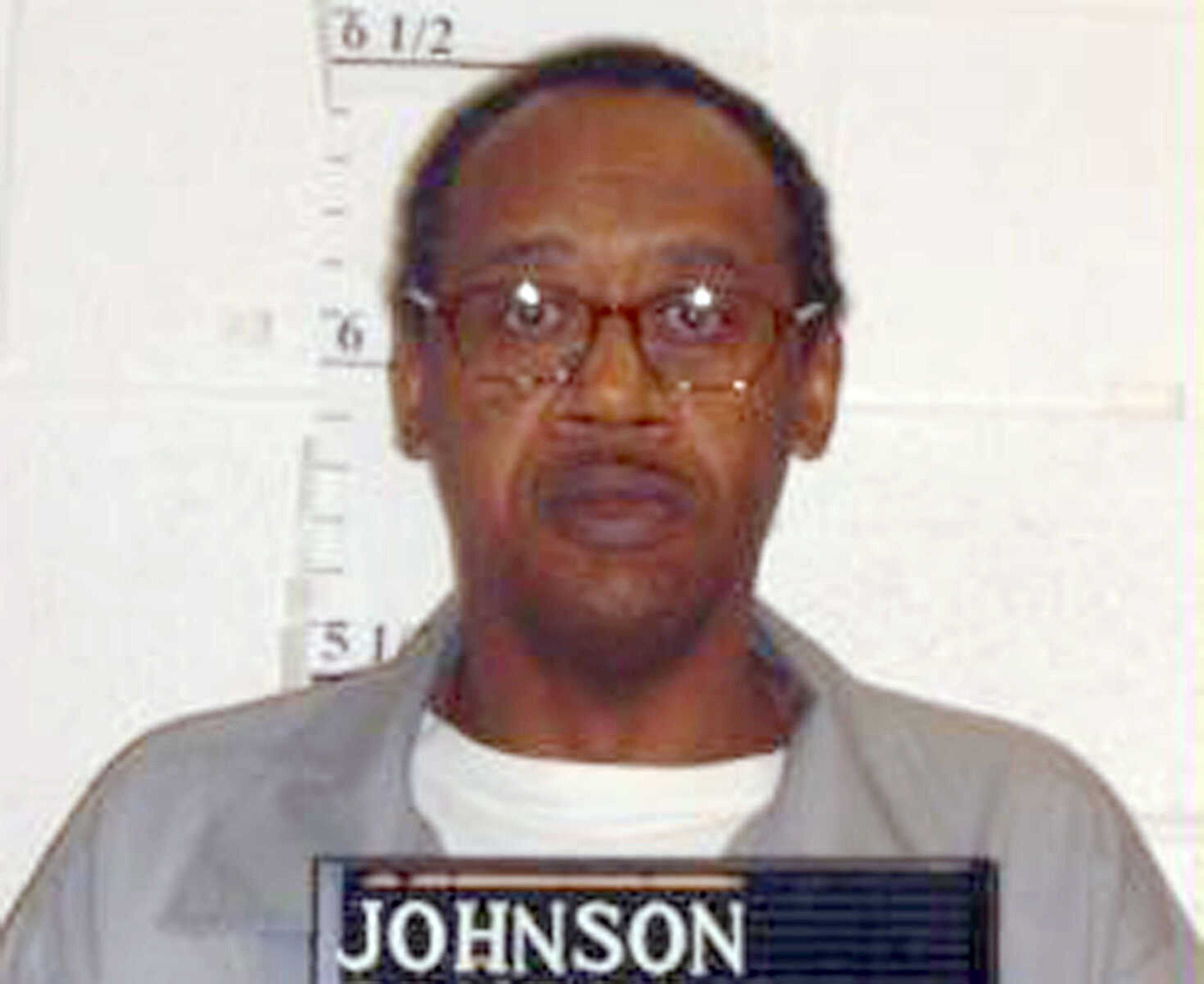Missouri execution canceled pending appeals court review
ST. LOUIS -- Missouri suspended the execution Wednesday of a man convicted of killing three convenience-store workers in 1994, saying courts didn't have time to quickly resolve questions raised in a last-minute ruling by the U.S. Supreme Court. Ernest Lee Johnson was scheduled to be executed at 6 p.m. Tuesday, but it was put on hold when justices ordered the 8th Circuit Court of Appeals to reconsider Johnson's claim execution drugs would cause painful seizures because of his brain tumor...
ST. LOUIS -- Missouri suspended the execution Wednesday of a man convicted of killing three convenience-store workers in 1994, saying courts didn't have time to quickly resolve questions raised in a last-minute ruling by the U.S. Supreme Court.
Ernest Lee Johnson was scheduled to be executed at 6 p.m. Tuesday, but it was put on hold when justices ordered the 8th Circuit Court of Appeals to reconsider Johnson's claim execution drugs would cause painful seizures because of his brain tumor.
The state has 24 hours to carry out a lethal injection, and state officials believed the court order wouldn't be resolved by the 6 p.m. Wednesday deadline in Johnson's case, Missouri Attorney General's Office spokeswoman Nanci Gonder said.
"Our expectation is that the 8th Circuit will proceed in the ordinary course of business," Gonder said in an email. "Consequently, there will not be an execution before the warrant expires today."
If the courts rule Johnson's execution can move forward, the Missouri Supreme Court would need to set a new date.
According to court documents, a doctor who examined Johnson determined Missouri's execution drug, pentobarbital, could cause serious seizures because Johnson still has part of a benign brain tumor. Surgery to remove the rest of the tumor in 2008 forced the removal of up to 20 percent of Johnson's brain tissue, according to his attorneys.
A separate appeal to the Missouri Supreme Court argues Johnson has an IQ of 67, a level considered mentally disabled, and is therefore ineligible for the death penalty.
His attorney, Jeremy Weis, said Wednesday that Johnson understood just enough of what was happening to know his life was spared, at least for now.
"I can't say he understood the issue. He understands that he got a stay and they won't take him out and kill him," Weis said.
Johnson was convicted of three counts of first-degree murder for killing three people -- 46-year-old Mary Bratcher, 57-year-old Mable Scruggs and 58-year-old Fred Jones -- during a closing-time robbery of a Casey's General Store in Columbia on Feb. 12, 1994.
All three workers were beaten to death with a claw hammer. Bratcher also was stabbed at least 10 times with a screwdriver, and Jones was shot in the face.
Johnson wanted money to buy drugs, authorities said. He was arrested after police found a bank bag, stolen money and store receipts at Johnson's house.
He already was on death row in 2001 when the U.S. Supreme Court ruled executing mentally disabled inmates was unconstitutionally cruel; his attorneys have noted he was tested as having an IQ of 63 in elementary school.
A new sentencing hearing was ordered, but Johnson was again sentenced to death in 2003. The Missouri Supreme Court tossed that sentence, too, but Johnson was sentenced to death for a third time in 2006.
Doctors couldn't remove his entire brain tumor in 2008. Weis said the combination of the remaining tumor and the fact Johnson lost about one-fifth of his brain has left him prone to seizures. He also has difficulty walking.
Court filings by the Attorney General's office note Missouri has carried out 18 "rapid and painless" executions since it went to the one-drug method in November 2013.
Other death-row inmates have had mixed success in pursuing claims that medical conditions should preclude them from execution.
In May 2014, the U.S. Supreme Court stopped the execution of Missouri inmate Russell Bucklew, who claimed the execution drug could cause suffering due to a rare congenital condition that causes weakened and malformed blood vessels, as well as tumors in his nose and throat. The case remains unresolved.
In March, Cecil Clayton claimed a sawmill accident that damaged his brain in the 1970s should prohibit execution. The courts disagreed, and Clayton, 74, was executed.
Connect with the Southeast Missourian Newsroom:
For corrections to this story or other insights for the editor, click here. To submit a letter to the editor, click here. To learn about the Southeast Missourian’s AI Policy, click here.









